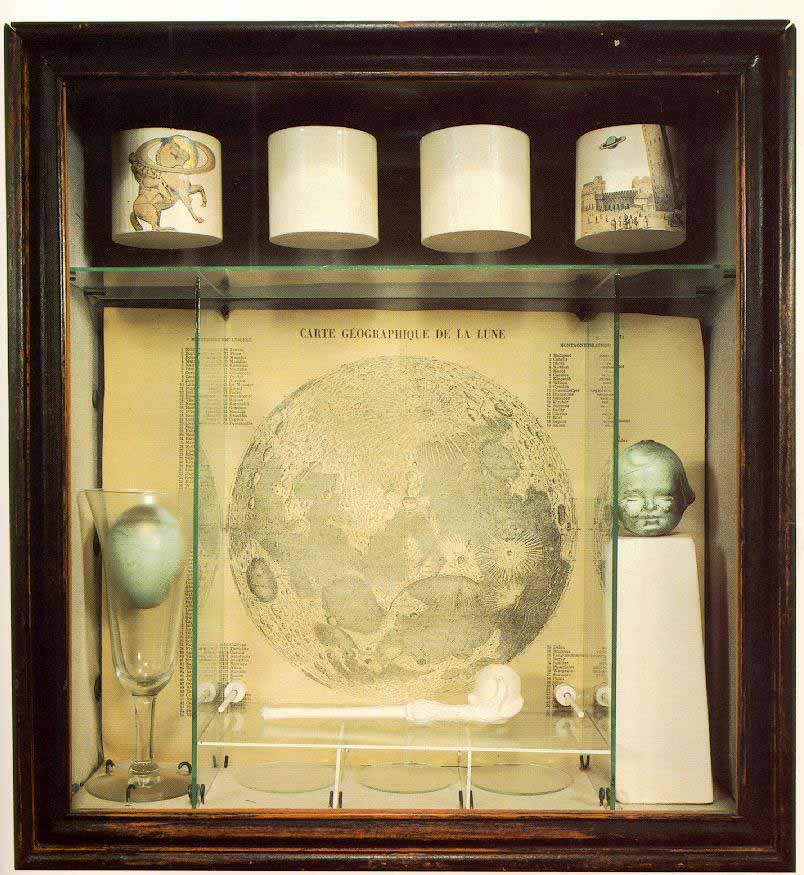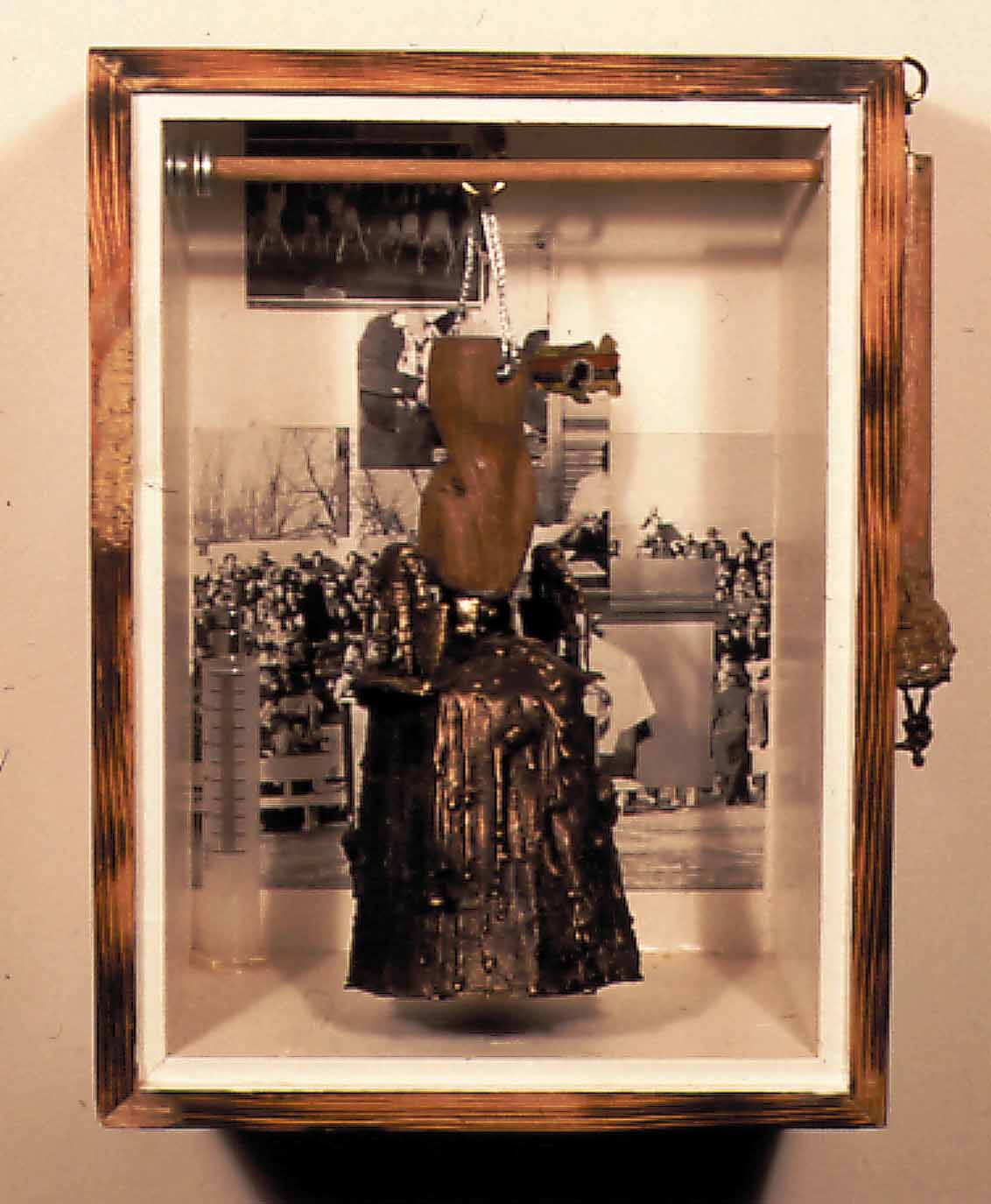| V | |
|
Visual
seven:
Things
Hurry Away
from
Their Names
Or Joe Emery, a contemporary
Georgia artist who builds the same kind of object, only more interactive
than Cornell's were. Part statuary, part mechanism. Those "constructions."
Cue
Sound Four.
Visual
eight:
Those inviting objects that
you can touch and open. You can ring the bell or put on the headphones.
Or you can take out the contents--the pill box, the glove, the photograph,
the razor--and hold them in your hand and rearrange them and put them in
again. You can write your name in the book that lies open there. You can
add a poem or a talisman of your own. You can stand back and look, and
reach in again and move one thing over and stand back again.
Sound four: what I am proposing in these anti-generic,
over-genred couplets is not some
genreless,
authorless writing, but a physically
and
socially located writing where
margins
are not metaphors, and where readers
are
not simply there, waiting to
be
liberated.
Gass reminds
us that writing is "making." Making is forming something, bringing a form
to what was formless. "Maker" is a good literal translation of the Greek
word "poet."
Electronics
rewards a different kind of text and a different kind of performance. Or
so it says here on the label.
Cue
sound five...
|
 Cornell:
both untitled (heh) Cornell:
both untitled (heh)
We get more of that sense of the readymade if, having thought of cubism, we now move toward Marcel Duchamp as Sirc reads him or toward Joseph Cornell as Janangelo reads him in the Feb 98 CCC. Those boxes Cornell made. Those objects that museums can only call "constructions." Cue Visual eight.
Notebook of the Mind
Can I do that, please? That's what readers do with
a "constructed" essay.
So if we think about poetics
and electronics in the delivery of academic essays, we are asking ourselves
about the form/s of writing that electronics might suggest, prefer, or
privilege.
We always get to this. You say the medium enables/rewards/prefers a certain style, an "electronic textuality," and I say no way. .
|

